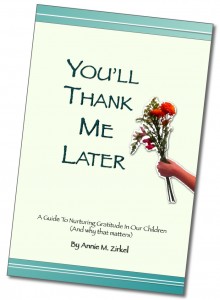Dear Annie,
My husband and I have been married 10 months and are blissfully in love. We are currently on a cross-country trip together, and all kinds of conflicts are arising. We are fighting about reading maps, miles per gallon calculations, and the fact that my husband is talking on the phone while drinking coffee, and driving in congested city freeway traffic. We are only halfway through our trip. How do we finish this trip compatibly??
Signed - Driving Me Crazy
ÂÂÂ
Dear Driving Me Crazy,
I presume that you mean 'finish this trip' as making it through the marriage right?
So here's what happens. We often go into relationships with our own set of 'rules' on how things are done. You usually agree on enough of these rules to get married. But as the trip goes on, you discover that your partner doesn't seem to know the other rules. And he or she has all kinds of non-sensical, poorly-thought-out ideas on how things are supposed to be done - like how to read a map, how to drive, how to load a dishwasher, how we spend money, how (and how often) we have sex, how we take care of the children, etc.
So what to do? Here's what you need to know to make this trip better:
The other person in the car is not you.
- You each have your own valid point of view.
- Curiosity is key. Going into challenges with curiosity versus rigid expectations or, worse yet, contempt (for the other person's 'obviously' inferior way of doing things) can spell the difference between conflict and cohesion.
- Facts and 'facts' are not the same. Often we state our way of doing things as the 'rule' because it is right for us. Appreciating that there are other ways of doing things that may have different benefits, goes a long way in getting along with others.
- Kindness matters. When you do have facts or 'best practices' on your side, relating them respectfully (as opposed to righteously) makes it easier to hear.
- Generosity goes a long way. Being generous about changing some of your ways is how a relationship grows.
- Generosity goes a long way. Being generous about letting some things go is just as essential as asking the other to change. In fact, research shows that even in good relationships, there are about 10 differences that will never get resolved.
- Keep your eye on the big picture. Being right can get in the way of being in a relationship. Keeping sight of what really is a big deal in life and what isn't makes all the difference.
- Think 5 to 1. Having lots of good moments, laughter, pleasure, and nice gestures to counter the challenges makes the trip worthwhile. (Current thinking is a 5 to 1 ratio there.) NOTE: Usually when you are feeling good about the relationship, you aren't as aggravated with your partner's behaviors - so you might want to check what's going on underneath the current disagreement.
- Have a soothing mantra. Just keep saying: This is a fun adventure! This is a fun adventure! There really are skills to marriage - the more you have, the better the ride.
Hope that helps. Check out my Couples Resources page for more ideas. Enjoy the rest of your trip.
Take care - Annie
Annie Zirkel, LPC is a Relationship Consultant based in Ann Arbor, Michigan. She can be reached at (and questions can be submitted to) annie@practicehow.com
Creative Commons License photo credit: Hvnly








